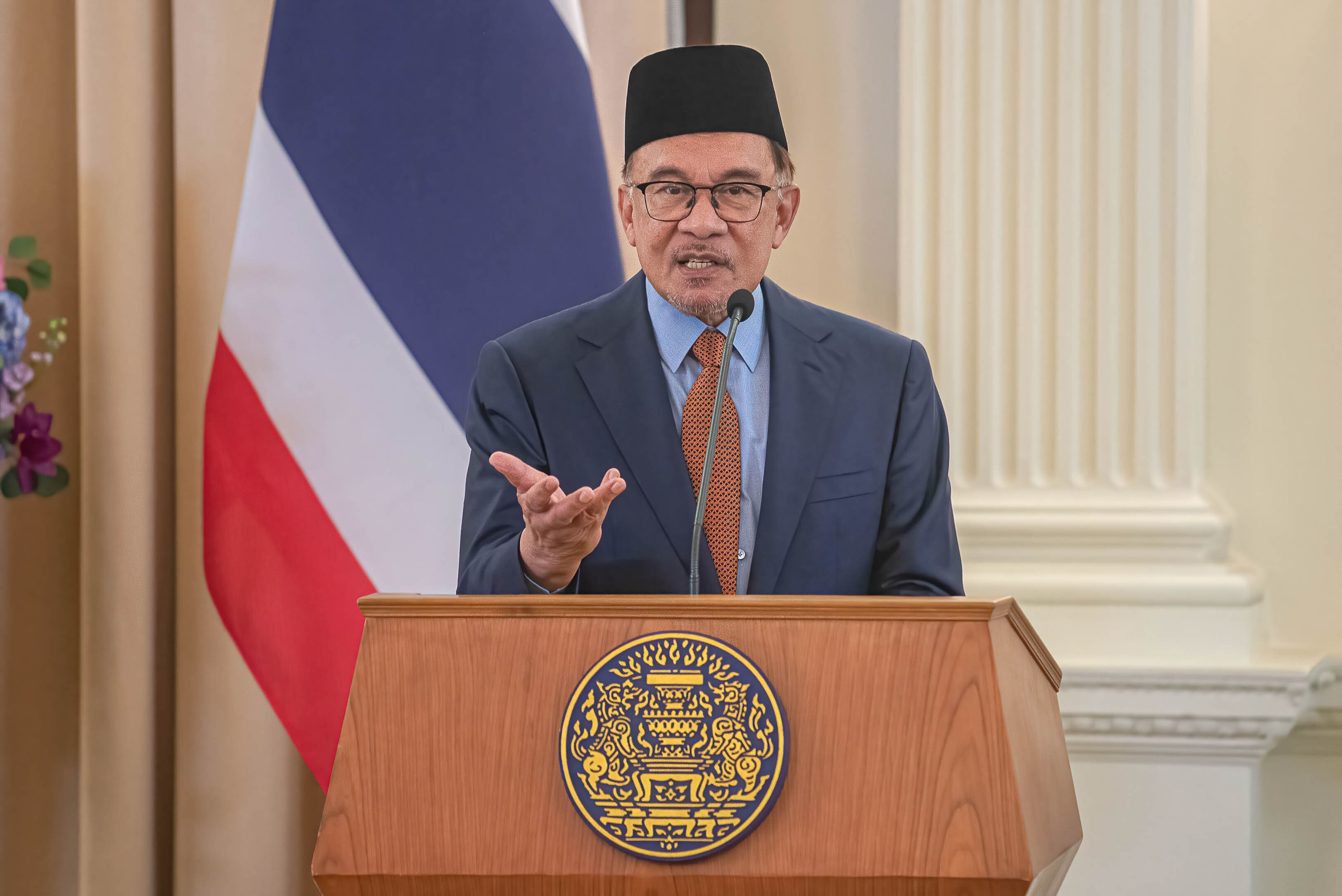International Politics
Anwar Ibrahim is finally head of government

Malaysias Premierminister Anwar Ibrahim
© © picture alliance / ZUMAPRESS.com | Peerapon BoonyakiatAnwar Ibrahim has reached his destination: on Thursday, the leader of the Malaysian Justice Party (PKR) took his oath of office as prime minister at King Abdullah Sultan Ahmad Shah's palace.
It is the temporary culmination of an unprecedented political career and an eventful life. The now 75-year-old has been a minister, protest leader and, most recently, opposition leader on several occasions. The depths of his life also include several years in prison - he was convicted of alleged homosexuality and corruption, among other things. Foreign governments and human rights organizations described the sentences as politically motivated.
For liberalism and democracy in Malaysia, Anwar's appointment as head of government is good news. He stands for multi-ethnic and progressive politics - standing up to rising Islamism and Malay ethnonationalism in the Southeast Asian country. His Justice Party is a long-standing partner of the Friedrich Naumann Foundation for Freedom. However, Anwar faces the challenge of unifying the divided country and stabilizing the stumbling economy.
The appointment as head of government, which has now taken place, was not without friction. The election results were extremely close. Anwar's coalition, Pakatan Harapan, the Alliance of Hope, won the most seats in parliament with 82. The second strongest force was the National Alliance (Perikatan Nasional) with 73 seats. It also includes the conservative Islamic PAS, which made considerable gains.
However, 112 seats are needed to form a government. Both the Alliance of Hope and the National Alliance thus had to find additional partners. Malaysia's King Abdullah Sultan Ahmad Shah played a decisive role in this. Malaysia's king is elected for a five-year term on a rotating basis among the representatives of nine hereditary Malaysian monarchies. The office is largely ceremonial, but the king has considerable power in the event of an unclear election outcome. Here, he entrusts the more trustworthy candidate with forming the government-and his choice was Anwar.
Three days after the election, Anwar's competitor Muhyiddin Yassin of the Perikatan Nasional still claimed to have 115 parliamentarians behind him. However, he was unable to convince the king of this.
Previous government punished
With the king's mediation, the most important previous governing party, Umno (United Malays National Organisation), finally agreed to join a unity government. The alliance will also include three other smaller parties: GPS from Sarawak and GRS and Warisan from Sabah.
Earlier in the day, Umno had achieved a disastrous election result, winning only 30 seats in parliament - a historically poor result for the party that had largely dominated Malaysia's politics since independence from Britain in 1957. The recently incumbent Umno head of government, Ismail Sabri Yaakob, had dissolved parliament in October in order to govern without a coalition in the future after an election victory. However, this plan did not work out.
The newly elected parliament will now convene on December 19. On the same day, Anwar will ask for a vote of confidence. In this way, Anwar wants to prove to his opponent Muhyiddin in particular that he has the necessary support in parliament.
Anwar faces the difficult task of uniting a deeply divided country and convincing a largely dissatisfied population. Contrary to expectations, almost 74 percent of the more than 21 million eligible voters went to the polls, more than ever before. Voters were not disaffected with politics, but punished the government.
In addition to the general political instability - possible new elections had been hanging in the air for more than a year and a half - the people of Malaysia have had enough of mismanagement and the rapidly rising cost of living. PAS has played to this tune in order to win over the low-income groups of all ages. With success: The party has been able to more than double its share of the vote - and not only in its core area in the north, but also in comparatively moderate southern states like Penang. With PAS, Anwar will have an aggressive opponent as opposition.
On the positive side, the post of deputy prime minister is to be filled by an East Malaysian - the part of the country that is resource-rich but otherwise offside. Anwar demonstrated his willingness to talk and compromise.
Mahathir Mohamad will now probably bid farewell to the political stage. In his decades-long political career, the 97-year-old has now suffered his first electoral defeat. Mahathir, who is considered the "father of modern Malaysia" and who has been in politics for five decades, lost in his constituency, the island of Langkawi, and was unable to win a mandate.
The fact that Mahathir, under whom Anwar was finance minister and deputy head of government in the 1990s and who jailed Anwar for six years in 1999, came away empty-handed and Anwar is now prime minister is not without a certain comedy. Mahathir's promise after winning the 2018 elections was that Anwar would take office as head of government in 2020. Mahathir never kept his promise, however, which led to another rift between the two. Now Anwar has made it to the top of the government even without Mahathir.
